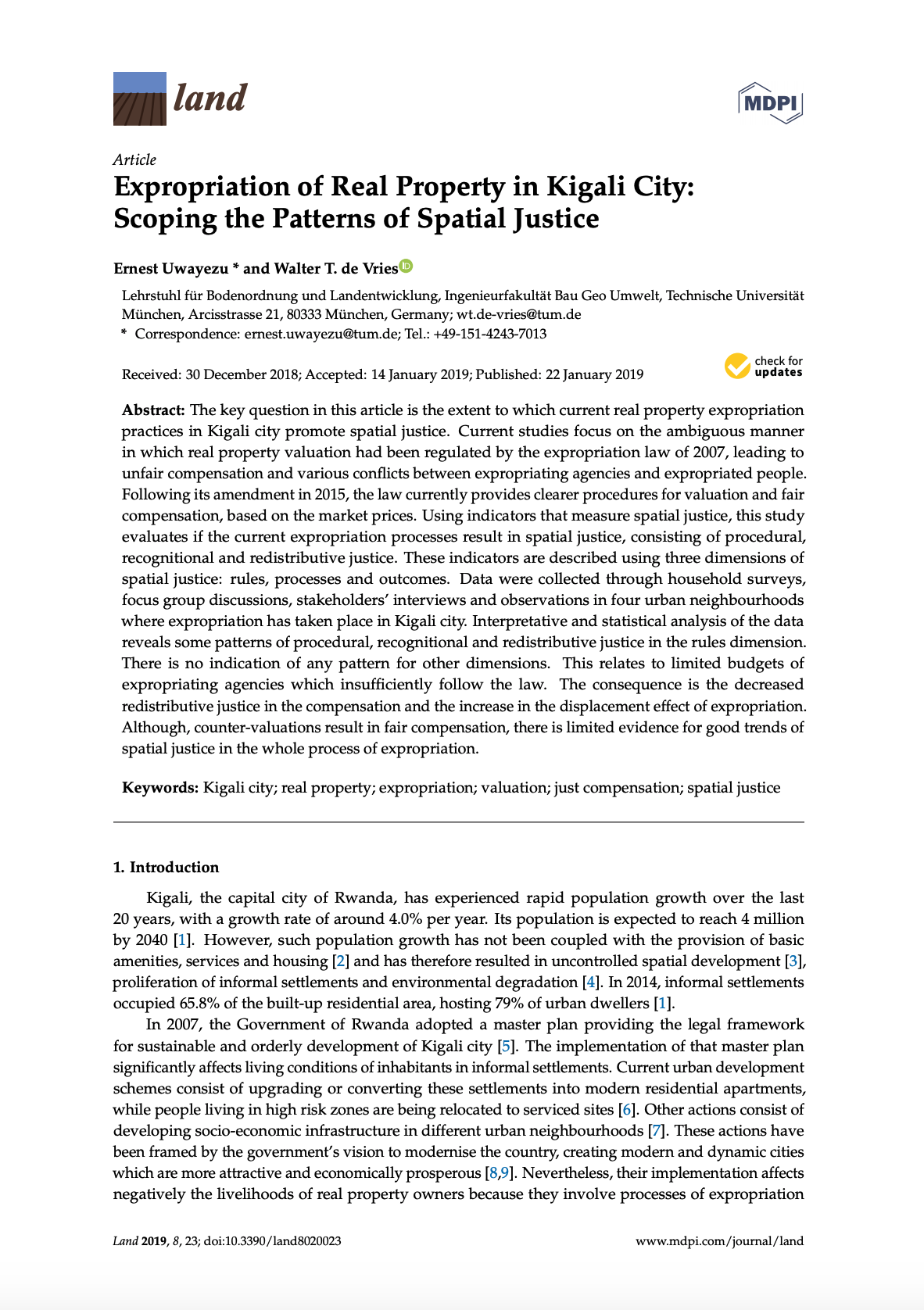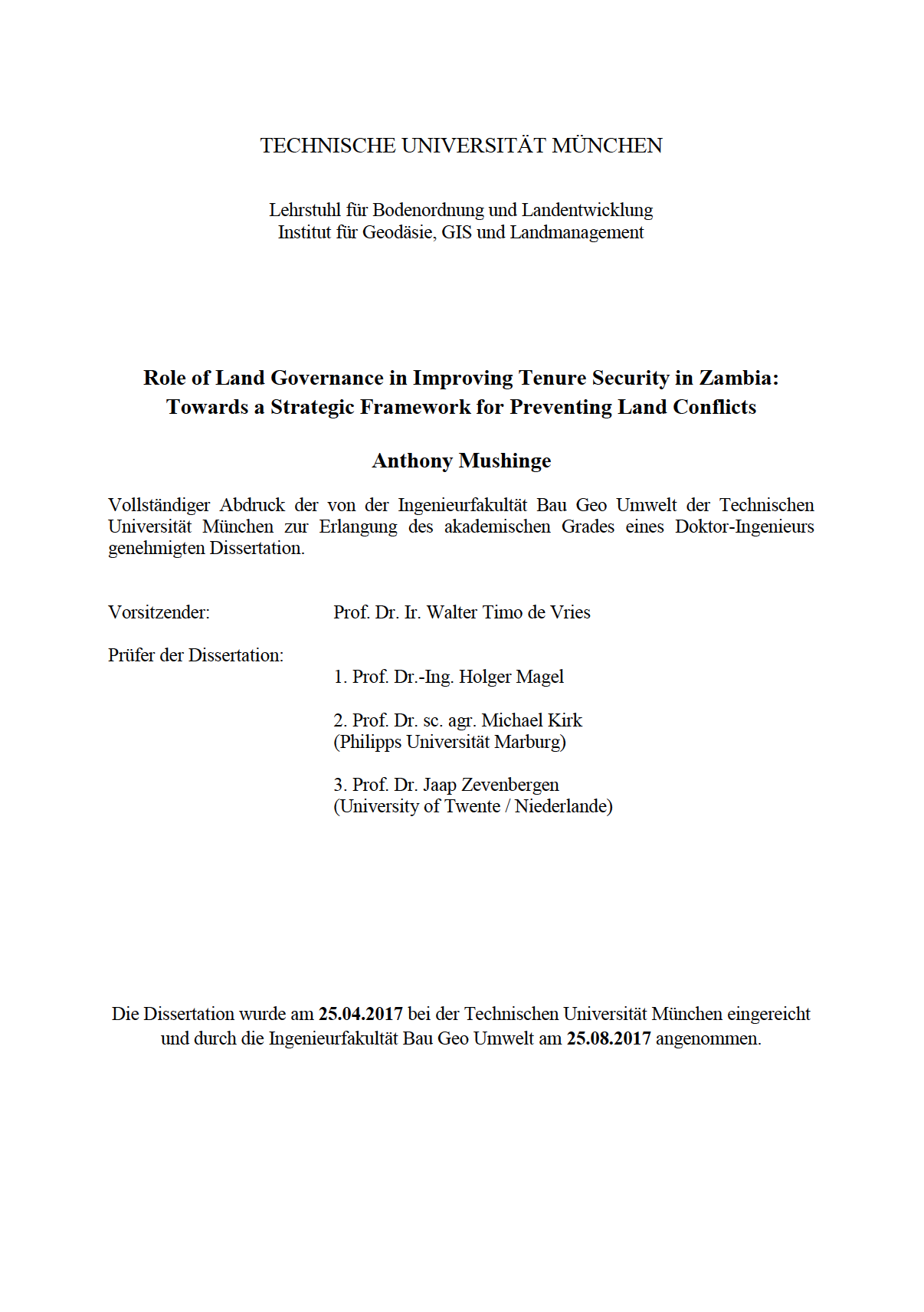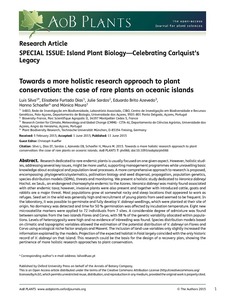Location
Profile Land Management Chair – Technical University of Munich, Germany
The Chair of Land Management - http://www.bole.bgu.tum.de/index.php?id=14&L=1 - researches and teaches different aspects and contexts of land management, land administration and spatial (land use) planning. The Chair has a research agenda called ‘Smart and responsible land management’, which has 6 thematic focus areas related to 4 research angles. The thematic focus areas include: integrated land and environmental management, cadastre, land registration and land information systems, rural land development and village renewal, urban land use planning, land consolidation and land valuation and human geodesy. The 4 research angles include: a better understanding of the socio-economic, legal-institutional and organisational context in which land issues are manifested; the development of a comprehensive set of tools, methods and instruments to re-design, re-invent and intervene in the current situation of land issues; the development of multi-disciplinary and transdisciplinary theoretical concepts about land matters; and, the construction and testing of trans-professional methods and tools which can be used effectively and appropriately to solve land related problems.
The chair contributes to a variety of Master and Bachelor programs, including geodesy and geoinformatics, geography, environmental planning, environmental engineering, and, transportation systems. In addition, the Chair has its own international Master program in Land Management and Land Tenure, http://www.landmanagement.bgu.tum.de/index.php?id=96http://www.landmanagement.bgu.tum.de/index.php?id=96 .
The Chair is an active member of the GLTN network. It is currently executing the project Tenure responsive land use planning. In addition, it has contributed to the GLTN’s projects on capacity development assessment strategies for land policy. In the context of German land management, the Chair is executing the project Integrated Land Management, funded by the Bavarian Agency for rural development.
Resources
Displaying 1 - 5 of 7Expropriation of Real Property in Kigali City: Scoping the Patterns of Spatial Justice
The key question in this article is the extent to which current real property expropriation practices in Kigali city promote spatial justice. Current studies focus on the ambiguous manner in which real property valuation had been regulated by the expropriation law of 2007, leading to unfair compensation and various conflicts between expropriating agencies and expropriated people. Following its amendment in 2015, the law currently provides clearer procedures for valuation and fair compensation, based on the market prices.
ORCHIDEE-PEAT (revision 4596), a model for northern peatland CO2, water, and energy fluxes on daily to annual scales
Role of Land Governance in Improving Tenure Security in Zambia: Towards a Strategic Framework for Preventing Land Conflicts
Zambia is one of the countries in Africa with a high frequency of land conflicts. The conflicts over land lead to tenure insecurity. In response to the increasing number of land conflicts, the Zambian Government has undertaken measures to address land conflicts, but the measures are mainly curative in nature. But a conflict sensitive land governance framework should address both curative and preventive measures.
Towards a more holistic research approach to plant conservation: the case of rare plants on oceanic islands
Research dedicated to rare endemic plants is usually focused on one given aspect. However, holistic studies, addressing several key issues, might be more useful, supporting management programs, while unravelling basic knowledge about ecological and population level processes. A more comprehensive approach to research is proposed, encompassing: phylogenetics/systematics, pollination biology and seed dispersal, propagation, population genetics, species distribution models (SDMs), threats and monitoring.
A diagnostic procedure for applying the social-ecological systems framework in diverse cases
The framework for analyzing sustainability of social-ecological systems (SES) framework of Elinor Ostrom is a multitier collection of concepts and variables that have proven to be relevant for understanding outcomes in diverse SES. The first tier of this framework includes the concepts resource system (RS) and resource units (RU), which are then further characterized through lower tier variables such as clarity of system boundaries and mobility.





